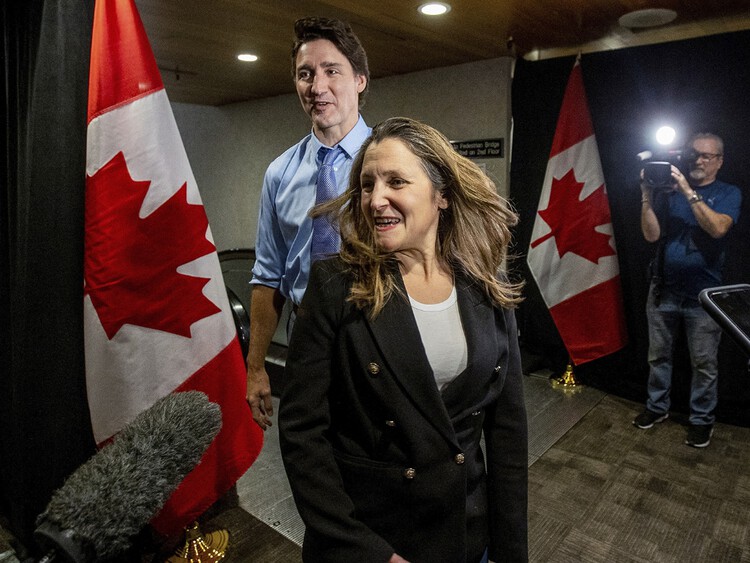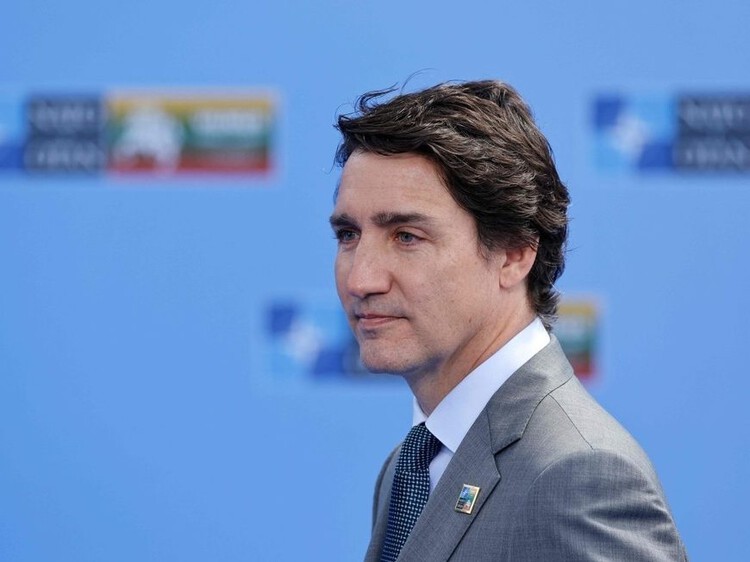Shoulda just drunk a cocktail of Clorox and Lysol and shoved a UV lamp up your ass.It’s also interesting, when a politician uses the same term for justification of their position, then completely flipped their position because of science, then, again, later, flips their position completely again, ‘cuz science….& the “science” hasn’t changed….. but only the funding for the political appointed spokesperson for the science.
Wear an N-95, then wear a cloth mask, then only the Medical community should need an N-95 or K-95, then only the N-95 offered any protection…& the cloth masks we all wore where window dressing….’cuz science…. Which never changed its position and went full circle through politics.
I followed the leader, & did what I was told start to finish, so I could keep on keeping on day to day, beginning to end… but I still find it interesting.
WE really need to get rid of this guy
- Thread starter Retired_Can_Soldier
- Start date
You are using an out of date browser. It may not display this or other websites correctly.
You should upgrade or use an alternative browser.
You should upgrade or use an alternative browser.
It’s also interesting, when a politician uses the same term for justification of their position, then completely flipped their position because of science, then, again, later, flips their position completely again, ‘cuz science….& the “science” hasn’t changed….. but only the funding for the political appointed spokesperson for the science.
Wear an N-95, then wear a cloth mask, then only the Medical community should need an N-95 or K-95, then only the N-95 offered any protection…& the cloth masks we all wore where window dressing….’cuz science…. Which never changed its position and went full circle through politics.
I followed the leader, & did what I was told start to finish, so I could keep on keeping on day to day, beginning to end… but I still find it interesting.
Sure, politicians use it to their advantage too, right and left.
When it comes to Covid, I DO give a bit of a break because it was a new strain and no one knew much about it, so we were going by old science/normal science at the time, then changed as we learned more. Hence the revolving door of issues. It was - and still is - science being science: go with what we know, adjust as we need to.
But as you pointed out, the politicians used it as they needed, whether to push for over the top protections, or no protections at all cause you couldn't trust the science.
NO! It's science's fault when it doesn't instantly understand all aspects of a new phenomenon!Sure, politicians use it to their advantage too, right and left.
When it comes to Covid, I DO give a bit of a break because it was a new strain and no one knew much about it, so we were going by old science/normal science at the time, then changed as we learned more. Hence the revolving door of issues. It was - and still is - science being science: go with what we know, adjust as we need to.
But as you pointed out, the politicians used it as they needed, whether to push for over the top protections, or no protections at all cause you couldn't trust the science.
Science? The same Science that dismisses the 1%+/- as anomolies. Science doesn't have your back. LGBTQ2S+×÷=/ is pure Petrie dish.NO! It's science's fault when it doesn't instantly understand all aspects of a new phenomenon!
Got 5 vaccinations instead, the first two shots +3 boosters at the recommended times, & wore the prescribed mask de jour in public, social distanced, etc…Shoulda just drunk a cocktail of Clorox and Lysol and shoved a UV lamp up your ass.
Next pandemic, we’ll see what the science says & govern ourselves accordingly.
Sorry my response was to Seryah post .No, of course not. I'm referring to the comment that Joli made. She's apparently so "scared" of the Right, they need to make plan? Seriously?.
Why? If their policies are so "good" what are they worrying about? Obviously, the "right" have solutions that the Left don't want solved.
yup that was an option. . To bad more smart internet lawyers didn’t take the bait .Shoulda just drunk a cocktail of Clorox and Lysol and shoved a UV lamp up your ass.
When in history did we lock down the healthy in the name of science ?Sure, politicians use it to their advantage too, right and left.
When it comes to Covid, I DO give a bit of a break because it was a new strain and no one knew much about it, so we were going by old science/normal science at the time, then changed as we learned more. Hence the revolving door of issues. It was - and still is - science being science: go with what we know, adjust as we need to.
But as you pointed out, the politicians used it as they needed, whether to push for over the top protections, or no protections at all cause you couldn't trust the science.
Got 5 vaccinations instead, the first two shots +3 boosters at the recommended times, & wore the prescribed mask de jour in public, social distanced, etc…
Next pandemic, we’ll see what the science says & govern ourselves accordingly.
I've been lucky enough that even with working in a hospital that had many patients and co-workers who had it, I never got it.
As far as I know I haven’t got it, but who knows? I know many many that did.I've been lucky enough that even with working in a hospital that had many patients and co-workers who had it, I never got it.
Row vs Wade when killing undesirables was decriminalized. It's not a "lockdown" per se but exclusion from the future as long as you have status.When in history did we lock down the healthy in the name of science ?
As far as I know I haven’t got it, but who knows? I know many many that did.
Same. I think the reason I avoided it mostly is because I work 12 hour night shifts, and don't do SFA when I'm off; or that's how it was. Now I'm covering for low staff and already worked myself into a head cold a couple weeks ago. If this new variant that's out there comes around here, I could get it myself. Even with being diabetic, I'm not too worried 'bout it though. If I get it I get it.
Ibuprofen for clotting, acetaminophen for the body and vitamin A, D, and B12. In other words drink tonnes of milk with the anticoags and nerve dampeners.Same. I think the reason I avoided it mostly is because I work 12 hour night shifts, and don't do SFA when I'm off; or that's how it was. Now I'm covering for low staff and already worked myself into a head cold a couple weeks ago. If this new variant that's out there comes around here, I could get it myself. Even with being diabetic, I'm not too worried 'bout it though. If I get it I get it.
Sure sucks being short staffed . I bet you wished you had the help your union threw under the bus .Same. I think the reason I avoided it mostly is because I work 12 hour night shifts, and don't do SFA when I'm off; or that's how it was. Now I'm covering for low staff and already worked myself into a head cold a couple weeks ago. If this new variant that's out there comes around here, I could get it myself. Even with being diabetic, I'm not too worried 'bout it though. If I get it I get it.
Yeah, this is from the week after they announced that they needed to separate for irreconcilable differences, where they go on vacation with each and their kids, & post it to social media because irreconcilable differences?
But don’t mention it and respect their privacy to keep them and their children out of the media, social or otherwise…

What the hell? She is gonna make the kelp smell like fish.Yeah, this is from the week after they announced that they needed to separate for irreconcilable differences, where they go on vacation with each and their kids, & post it to social media because irreconcilable differences?
But don’t mention it and respect their privacy to keep them and their children out of the media, social or otherwise…
While the federal government is strategizing about how to cope with a possible victory by Donald Trump in next year’s presidential election, could it explain why it failed to anticipate U.S. President Joe Biden’s Inflation Reduction Act???Foreign Affairs Minister Mélanie Joly says Canada has been considering a "game plan" for how it would respond if the United States takes a far-right, authoritarian shift after next year's presidential elections.
"We are certainly working on scenarios," Joly said in French during an interview with a Montreal radio station Wednesday.
Joly added that Ottawa's close political and economic ties to the U.S. means that "we must certainly prepare several scenarios."
She suggested Canada has a game plan in mind but wouldn't get into details. Ohhh, Scary Right-Wing Americans now…who are they trying to divide and conquer with this titbit of information???

Canada mulling 'game plan' if U.S. takes far-right, authoritarian shift: Joly — The Canadian Press
OTTAWA - Foreign Affairs Minister Mélanie Joly says Canada has been considering a "game plan" for how it would respond if the United States takes a far-right, authoritarian shift after next year's presidential elections.apple.news
That legislation, passed last year, whose main purpose was in fact to offer hundreds of billions of dollars in subsidies to clean energy companies in the U.S., has resulted in Canadian taxpayers going into hock — even more than they already were — with regard to Prime Minister Justin Trudeau’s climate-change strategy.
For example, if you’re wondering why the federal and Ontario governments just promised up to $30 billion to European automakers Volkswagen and Stellantis to manufacture electric vehicle batteries in Canada instead of the U.S., that’s the direct result of the massive subsidies offered to such companies under the IRA.
It wasn’t part of the Trudeau government’s strategy — which has already imposed a national carbon tax/price on Canadians, while the U.S. has never had one, a policy continued by Biden.
EDITORIAL: Canada sucker-punched by Biden’s IRA — Toronto Sun
While the federal government is strategizing about how to cope with a possible victory by Donald Trump in next year’s presidential election, could it explain why it failed to anticipate U.S. President Joe Biden’s Inflation Reduction Act? That legislation, passed last year, whose main purpose was...
In other words, the Trudeau government’s policy — and spending — on climate change, is now being driven by U.S. policy which, in the real world, was inevitable given our shared borders.
The difference is the Americans don’t have a national carbon tax — a tax the Trudeau government repeatedly assured us would make Canada a global leader in attracting green technology investments here, compared to other countries without one.
In a commencement address to graduating students at Boston’s Northwestern University in May, Deputy Prime Minister Chrystia Freeland said the fundamental question of our time is: “Does capitalist democracy still work?”
That, of course, raises the question of what she thinks should replace it, if she wonders if it’s still working, since dictatorships — see the collapse of the former Soviet Union — don’t exactly have a great record on capitalism or democracy.
And what does it mean in the context of a Liberal government headed by Prime Minister Justin Trudeau, who, when asked in 2013, when he was Liberal leader, what country he most admired aside from Canada, answered:
“There’s a level of admiration I actually have for China. Their basic dictatorship is actually allowing them to turn their economy around on a dime and say, ‘We need to go green, we want to start investing in solar’.” (?????)
GOLDSTEIN: Freeland questions whether 'capitalist democracy' still works — Toronto Sun
In a commencement address to graduating students at Boston’s Northeastern University in May, Deputy Prime Minister Chrystia Freeland said the fundamental question of our time is: “Does capitalist democracy still work?” That, of course, raises the question of what she thinks should replace it, if...
Does she mean the 9 Liberals that remain after a "no confidence" and election this fall?While the federal government is strategizing about how to cope with a possible victory by Donald Trump in next year’s presidential election, could it explain why it failed to anticipate U.S. President Joe Biden’s Inflation Reduction Act???
That legislation, passed last year, whose main purpose was in fact to offer hundreds of billions of dollars in subsidies to clean energy companies in the U.S., has resulted in Canadian taxpayers going into hock — even more than they already were — with regard to Prime Minister Justin Trudeau’s climate-change strategy.
For example, if you’re wondering why the federal and Ontario governments just promised up to $30 billion to European automakers Volkswagen and Stellantis to manufacture electric vehicle batteries in Canada instead of the U.S., that’s the direct result of the massive subsidies offered to such companies under the IRA.
It wasn’t part of the Trudeau government’s strategy — which has already imposed a national carbon tax/price on Canadians, while the U.S. has never had one, a policy continued by Biden.
Federal Finance Minister Chrystia Freeland herself said, when releasing her 2023 budget in March, that Canada wouldn’t have earmarked $80 billion in subsidies for such deals —raising the total amount the federal government is spending on climate change to $200 billion — were it not for Biden’s IRA.
EDITORIAL: Canada sucker-punched by Biden’s IRA — Toronto Sun
While the federal government is strategizing about how to cope with a possible victory by Donald Trump in next year’s presidential election, could it explain why it failed to anticipate U.S. President Joe Biden’s Inflation Reduction Act? That legislation, passed last year, whose main purpose was...apple.news
In other words, the Trudeau government’s policy — and spending — on climate change, is now being driven by U.S. policy which, in the real world, was inevitable given our shared borders.
The difference is the Americans don’t have a national carbon tax — a tax the Trudeau government repeatedly assured us would make Canada a global leader in attracting green technology investments here, compared to other countries without one.
In a commencement address to graduating students at Boston’s Northwestern University in May, Deputy Prime Minister Chrystia Freeland said the fundamental question of our time is: “Does capitalist democracy still work?”
That, of course, raises the question of what she thinks should replace it, if she wonders if it’s still working, since dictatorships — see the collapse of the former Soviet Union — don’t exactly have a great record on capitalism or democracy.
And what does it mean in the context of a Liberal government headed by Prime Minister Justin Trudeau, who, when asked in 2013, when he was Liberal leader, what country he most admired aside from Canada, answered:
“There’s a level of admiration I actually have for China. Their basic dictatorship is actually allowing them to turn their economy around on a dime and say, ‘We need to go green, we want to start investing in solar’.” (?????)
On that front, Environment Minister Steven Guilbeault will soon be off to China, ostensibly to make the world’s largest emitter of industrial greenhouse gases, the country that burns more coal than the rest of the world combined, an ally in the fight against climate change.
GOLDSTEIN: Freeland questions whether 'capitalist democracy' still works — Toronto Sun
In a commencement address to graduating students at Boston’s Northeastern University in May, Deputy Prime Minister Chrystia Freeland said the fundamental question of our time is: “Does capitalist democracy still work?” That, of course, raises the question of what she thinks should replace it, if...apple.news
“Yeah, people are facing tough times and, yes, everyone is finding it difficult right now,” Trudeau said Wednesday at the closing news conference after his government’s cabinet retreat in Charlottetown, P.E.I.
“As leaders, MPs and parliamentarians of all types, part of our job is to be there, to take it, to support it as Canadians are anxious and put out solutions. So yeah, this is not an easy time to be a politician,” Trudeau said.
The seemingly tone-deaf response won’t go down as a ‘Don’t Cry for Me Argentina” speech, but maybe more of a ‘cry for me Canada’ one.
Earlier in Charlottetown, Trudeau said he won’t “give up” on people displaying “F— Trudeau” bumper stickers because he understands some are “hurting.”
Then there was this part glass-half-full, part head-in-the-sand second soliloquy where Trudeau’s narrative seemed to be trying to assure himself and his team that they are still relevant while trying to convince an ornery electorate he can still win despite opinion polls showing a ten-point disadvantage to his opposition.
He didn’t point the finger at himself but at the era.
“This is a time when politics is divided and toxic in so many ways,” Trudeau explained. “But it is so important that we continue to be there and be positive and hopeful.”
As part of this positive and helpful approach, Trudeau — who once said demonstrators hold “unacceptable views” while antivaxxers “don’t believe in science” and are “often misogynistic and racist” and questioned, “Do we tolerate these people?” — blamed today’s problems on Conservative Leader Pierre Poilievre, former Conservative prime minister Stephen Harper, Russian President Vladimir Putin and the COVID-19 pandemic.

 apple.news
The Trudeau government’s dog-eared playbook of calling opponents evil has reached the point of absurdity.
apple.news
The Trudeau government’s dog-eared playbook of calling opponents evil has reached the point of absurdity.
Disagree with Prime Minister Justin Trudeau’s carbon tax and former environment minister Catherine McKenna will accuse you of being an “arsonist.”
Object to their plan to bring in almost 1.5 million immigrants between now and 2025, contributing to Canada’s housing crisis, and Immigration Minister Marc Miller will suggest you’re among “a segment of folks that have blamed immigrants for taking houses, taking jobs, you name it.”

 apple.news
apple.news
Express anger about Beijing’s dictators interfering in our democracy and Trudeau will reply that “one of the things we’ve seen, unfortunately, over the past years is a rise in anti-Asian racism linked to the pandemic and concerns being raised or arisen around people’s loyalties.”
This despite the fact numerous leaders and organizations representing Canadians of Chinese origin have repeatedly called for a public inquiry into foreign interference, while Trudeau continues to rag the puck on calling one.
Criticize Trudeau’s decision to invoke the Emergencies Act to end protests against his government and Trudeau will liken you to supporting “people who wave swastikas,” as if it would be impossible to protest federal pandemic policies for legitimate reasons.
Voice, as a Muslim parent, concern about gender identity classes in public schools and the PM will say you’re being influenced by “the American right-wing” spreading “misinformation and disinformation” as if no one could have genuine concerns about the issue.

 apple.news
apple.news
“As leaders, MPs and parliamentarians of all types, part of our job is to be there, to take it, to support it as Canadians are anxious and put out solutions. So yeah, this is not an easy time to be a politician,” Trudeau said.
The seemingly tone-deaf response won’t go down as a ‘Don’t Cry for Me Argentina” speech, but maybe more of a ‘cry for me Canada’ one.
Earlier in Charlottetown, Trudeau said he won’t “give up” on people displaying “F— Trudeau” bumper stickers because he understands some are “hurting.”
Then there was this part glass-half-full, part head-in-the-sand second soliloquy where Trudeau’s narrative seemed to be trying to assure himself and his team that they are still relevant while trying to convince an ornery electorate he can still win despite opinion polls showing a ten-point disadvantage to his opposition.
He didn’t point the finger at himself but at the era.
“This is a time when politics is divided and toxic in so many ways,” Trudeau explained. “But it is so important that we continue to be there and be positive and hopeful.”
As part of this positive and helpful approach, Trudeau — who once said demonstrators hold “unacceptable views” while antivaxxers “don’t believe in science” and are “often misogynistic and racist” and questioned, “Do we tolerate these people?” — blamed today’s problems on Conservative Leader Pierre Poilievre, former Conservative prime minister Stephen Harper, Russian President Vladimir Putin and the COVID-19 pandemic.
WARMINGTON: Think times are tough? PM says not 'easy' for him either — Toronto Sun
Tone-deaf Justin Trudeau says it's not an easy time to be a politician
Disagree with Prime Minister Justin Trudeau’s carbon tax and former environment minister Catherine McKenna will accuse you of being an “arsonist.”
Object to their plan to bring in almost 1.5 million immigrants between now and 2025, contributing to Canada’s housing crisis, and Immigration Minister Marc Miller will suggest you’re among “a segment of folks that have blamed immigrants for taking houses, taking jobs, you name it.”
GUNTER: Trudeau government ignores problems by spinning tales — Toronto Sun
When Prime Minister Justin Trudeau shuffled his cabinet in July, he explained it was because his government had a communications problem. I thought that was spin. Turns out he was serious. It’s obvious from the remarks of his new and repurposed ministers in their first few weeks in their new...
Express anger about Beijing’s dictators interfering in our democracy and Trudeau will reply that “one of the things we’ve seen, unfortunately, over the past years is a rise in anti-Asian racism linked to the pandemic and concerns being raised or arisen around people’s loyalties.”
This despite the fact numerous leaders and organizations representing Canadians of Chinese origin have repeatedly called for a public inquiry into foreign interference, while Trudeau continues to rag the puck on calling one.
Criticize Trudeau’s decision to invoke the Emergencies Act to end protests against his government and Trudeau will liken you to supporting “people who wave swastikas,” as if it would be impossible to protest federal pandemic policies for legitimate reasons.
Voice, as a Muslim parent, concern about gender identity classes in public schools and the PM will say you’re being influenced by “the American right-wing” spreading “misinformation and disinformation” as if no one could have genuine concerns about the issue.
EDITORIAL: Trudeau Liberals are gaslighting Canadians — Toronto Sun
The Trudeau government’s dog-eared playbook of calling opponents evil has reached the point of absurdity. Disagree with Prime Minister Justin Trudeau’s carbon tax and former environment minister Catherine McKenna will accuse you of being an “arsonist.” Object to their plan to bring in almost 1.5...
![sgt-moonjelly[1].jpg sgt-moonjelly[1].jpg](https://forums.canadiancontent.net/data/attachments/17/17285-426a49a80188ee454272b72006832703.jpg)
